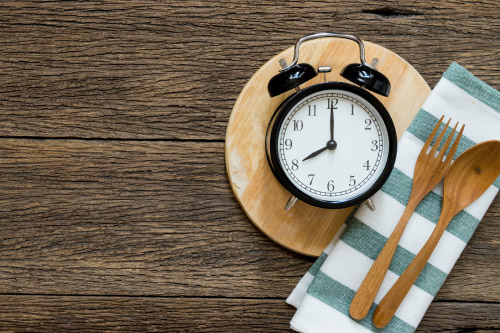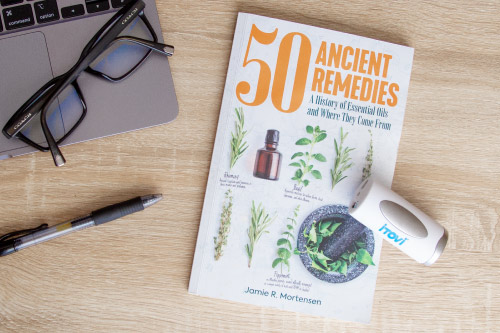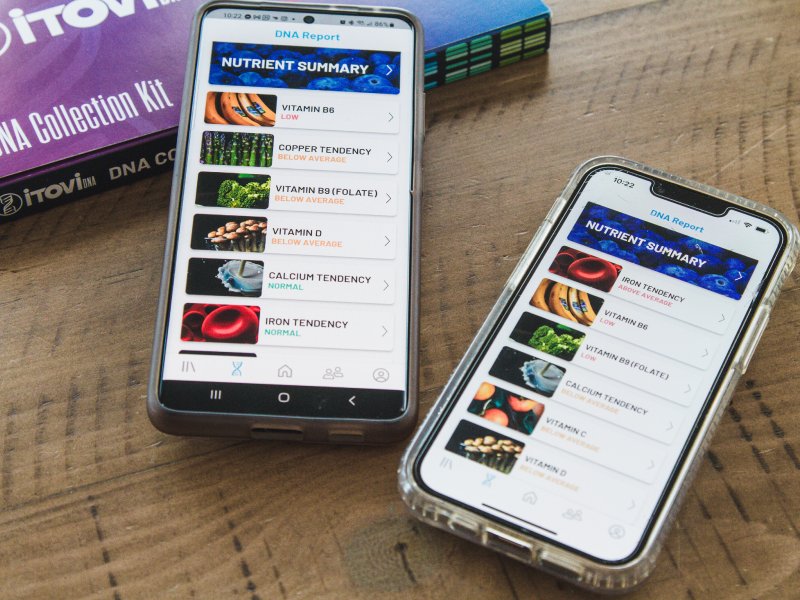 Clock-And-Utensils
Clock-And-Utensils
You may not be used to thinking about timing for your nutrition. But like love, music, and comedy—in nutrition, timing is everything!
Okay, not everything. But it sure counts for a lot!
Consider: Nutrition is all about having the right food ingredients in your body at the right time!
Good timing will make sure your digestive system can absorb the good nutrients from your food more efficiently (so your careful meal planning and healthy food choices don’t go to waste)! Good nutritional timing will also protect your energy levels, ensure your body’s many systems can run smoothly, aid with weight management, and more!
On the other hand, poor nutritional timing can lead to suboptimal nutrient absorption, fat buildup instead of fat burning, trouble sleeping, metabolic problems, chronically higher stress levels, lower energy levels, and more!
So, let’s talk about nutrition and timing! Most importantly, let’s talk about how you can optimize your eating schedule for maximal nutritional health (with a little help from your essential oils and the iTOVi scanner, of course).
Timing Factors in the Body & Gut
Ah, if only it were as simple as “shovel in some food in” whenever…maybe just often enough so you don’t starve. But it’s not that simple. The body has a timetable to keep as well as a bunch of time-dependent mechanisms that affect how many benefits (or detriments) you get from eating certain foods.
The speed and efficiency of your metabolism vary according to the time of day and the steadiness of your sleep-wake cycle, aka circadian rhythm.
And it’s not just your gut that runs on a clock! Your endocrine system, immune system, circulatory system, and other bodily systems run based off of your circadian rhythm too and by this link they can dramatically affect and be affected by your body’s digestive/timing system.
What’s more, although your body has evolved to work on a timetable, life can wreak havoc on that timetable and the biology it directs! Late nights, early mornings, chronic or acute stress, and, of course, certain medical conditions, can throw a wrench into your body’s daily timetable and, by extension, into your nutritional health.
For more information on stress, your circadian rhythm, and the various systems in your body, check out the other general guides on our blog (i.e. iTOVi Sleep Guide, Immune System Guide, etc).
For tips on what to do to optimize your nutritional timing, see below! Note, however, that since there are a lot of tips below—don’t try to implement them all at once! Focus and try to incorporate them into your lifestyle one at a time.
Tip #1: Destress BEFORE you eat
Facts—stress equals poor nutrient absorption from what you eat AND poorer food-choice decisions.
You may be in the habit of eating last minute or eating “on the go”, but this is a bad idea!
When you are stressed (and, yes, rushed), your body turns on your sympathetic nervous system and sends blood and energy to your muscles, limbs, and brain to help you deal with the “threat”. That’s all well and good if you are running from a bear, but not good if you need to be eating!
For optimal digestion, you need your blood and energy to go to your gut (parasympathetic nervous system activated). You need to be relaxed, at your ease, unrushed, and, ideally, a bit sedentary! This will allow your digestive system to digest the food you eat properly. If you eat in a stressed and rushed manner your body will absorb less of the vital nutrients in your food and, what’s more, your digestive system may backfire on you with stomach pains, nausea, diarrhea, or worse!
So, before you eat:
- Stop and check in on your stress levels (a few minutes of meditation or an iTOVi Scan might help).
- Take a little time to confront and process your stressful emotions before eating. This will help you digest better and keep you from “eating” your emotions.
- If you are just generally stressed, take a few minutes to destress (meditation, aromatherapy, a short walk, a friendly phone call, or even a few minutes of makarasana) before you start eating.
- Savor the food-preparatory experience. Stop for a moment to smell and visually admire your food before you eat it. This will prime your digestive system for optimal digestion.
- Eat slowly. Notice the textures and flavors as well as the sensations of biting, chewing, and swallowing. Notice how good it feels to feel “full” or at least “satiated” at the end of your meal.
Tip #2: Favor Whole Meals over Snacking
Digestion, especially the early stages of it, is an ordeal for the body! It takes quite a bit of bodily energy, resources, and a certain amount of time to digest your food. (i.e. You may be familiar with the “lull” period a little after lunch where it’s harder to focus mentally or have physical energy. Yeah, that is the energy cost of digesting your food.)
To that end, it’s better for you—for your brain, your energy levels, stress levels, blood sugar, weight, and more—to get most of that digesting done in meal-sized chunks “all at once” rather than the starting-then-stopping, starting-then-stopping digestion that happens when you “snack” your way through your day.
To make this easier, plan your meals ahead of time! Plan to eat a full meal—enough to really satiate you.
A tell-tale sign that you are “snacking” rather than having a real meal is if your hunger spikes just an hour and a half or so after you eat rather than 3-4 hours after.
If you must snack, favor snacks that are low in sugar/simple carbs and high in healthy fats (i.e. nuts, guacamole, or yogurt) as these will not spike your blood sugar nearly as much between meals.
Bonus tip: A little cinnamon or cinnamon oil may help with sugar cravings and support blood sugar control.
Tip #3: Don’t Eat Too Late in the Day
Eating too late in the day, especially sugar and especially in the 2-3 hours before bedtime, can sabotage your ability to sleep well, throw off your weight management efforts, increase the next day’s stress, and more.
Have dinner at a reasonable (at least 3 hours before bedtime) hour and then be done! No more eating today! No half-hour later desserts, glasses of wine, or soda drinks! You miiiight be okay with a soothing cup of tea provided that you haven’t added sugar or anything with significant calories to it.
The truth is, a single gram of sugar in the 2-3 hours before bedtime can throw your digestive health off for the night! So resist! Focus instead on a thorough soothing bedtime routine that will set you up for your best day tomorrow!
Bonus tip: Health and weight management-wise, lighter dinners tend to be better! It’s best to get most of your daily calories in before 4 p.m., so focus on bigger breakfasts and lunches and smaller dinners!
Tip #4: Don’t Eat Too Early!
The first hour or two after you wake up is actually very important to your digestive system! It is just waking up! And the truth is that your body will be better able to absorb and make use of the nutrients from your breakfast if you wait an hour or two after waking to eat that breakfast!
It’s not a bad idea to get a drink of water, maybe with some lemon, or have a warm cup of tea first thing in the morning. This can help get things in your digestive tract warmed up, cleaned out, and moving.
But try to save breakfast for an hour or two later. It may help if you have a solid morning routine in place to help you gradually energize yourself for the day ahead (a little movement, hygiene routine, energizing aromatherapy, and/or mental-focus exercises can be excellent in a morning routine).
Extra breakfast tips:
- It’s a good idea to have at least a little bit of protein in your breakfast.
- Don’t be afraid to front-load your daily carbs (preferably complex ones)
- If you have a hard time eating breakfast because you “just don’t feel hungry” in the morning, remember 1) a 1-2 hour morning routine will help build up hunger and 2) try to eat at least a little of breakfast each day. Gradually, your body will learn to “be hungry” for breakfast.
- We don’t recommend it, but if you do have anything sugary for breakfast, 2) try to mix some fiber in with the sugar so it won’t spike your blood sugar as much. (Here’s a secret, if you do have sugar, it’s actually better to have it in the morning rather than late at night. Maybe we need to switch our culture’s habits about when “dessert” is served.)
Tip #5: Eat to Support, Rather than Sabotage, Your Exercise Time
Eating and exercise have a finicky, time-dependent relationship.
Eating just before you exercise can disrupt digestion and your exercise results. And eating just after you exercise can also disrupt your exercise results!
That said, giving a little more time between eating and exercise can make them beneficial to each other! Eating an hour or two before you exercise could improve your energy levels. And eating an hour or two after you exercise could help your body recover efficiently and build muscle!
So nutrition and exercising can work together…just not too close together.
Also if you struggle with having a regular healthy appetite, some exercise followed by an hour or two waiting period may help get the tummy rumbling!!
Until Next Time
That’s it for nutrition and timing! Stay tuned for Part 4 of the iTOVi Nutrition Guide…




